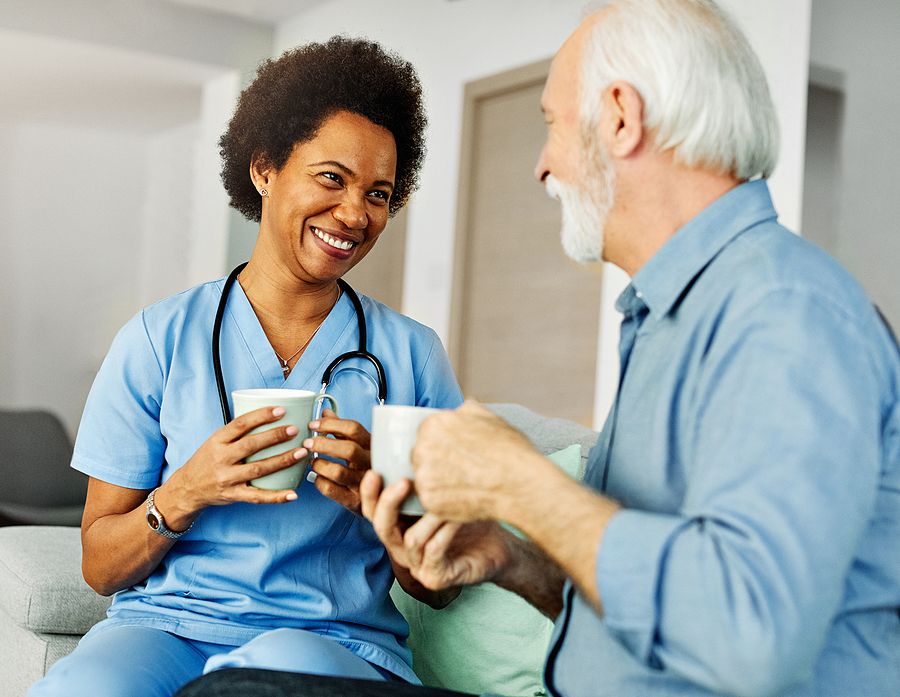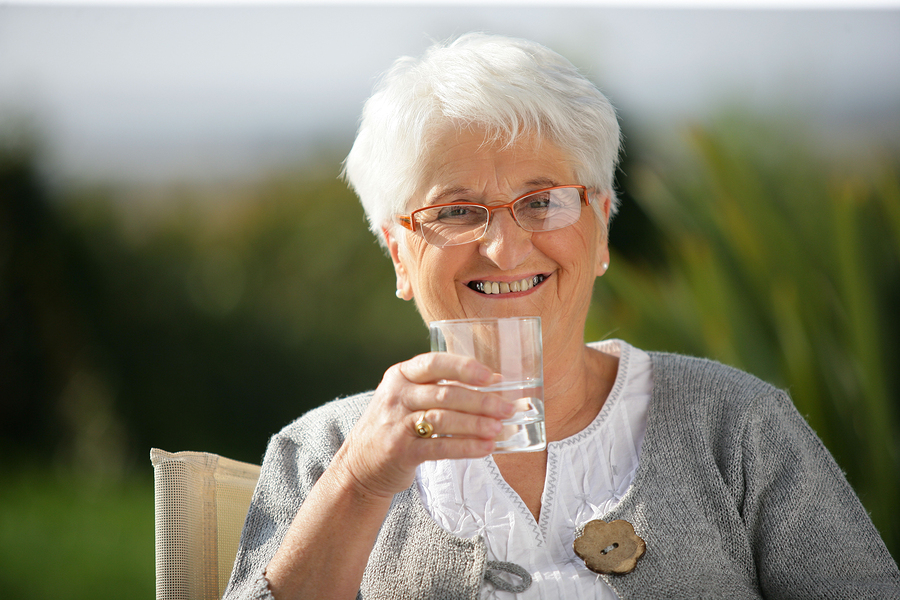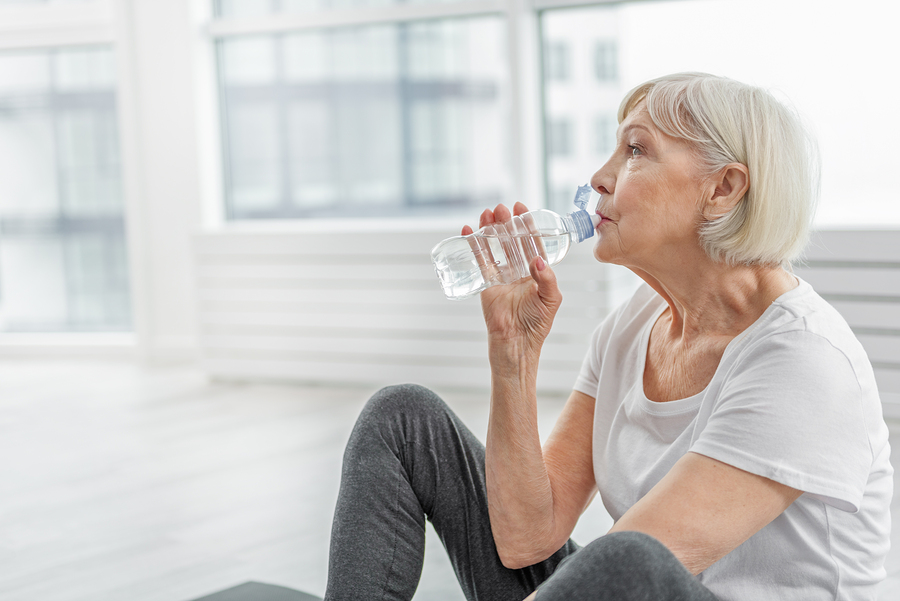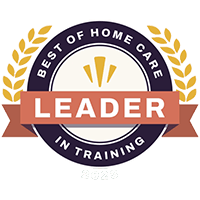Being properly hydrated may not seem like it has a positive impact on health and wellness, but it can boost the body’s ability to function well. Especially in elderly adult, proper hydration is the key to keeping them healthy and able to fight off many common age-related conditions. Dehydration, on the other hand, can be particularly detrimental to seniors. Family caregivers must work hard to ensure their aging loved one doesn’t become dehydrated.
What Causes Dehydration in Seniors?
If the body loses too many fluids without anything restoring them, it falls into a state of dehydration. Because fluids are critical to things like blood flow, the lack of them can lead to partial or total system shutdowns. Dehydration can happen to people at any age, especially if they are hot or exercising too much. Seniors, on the other hand, develop dehydration at a rapid rate. Symptoms of dehydration in seniors includes dry mouth, infrequent urination, dark urine, poor skin elasticity, dizziness and in extreme cases, seizures and unconsciousness.
The reason seniors are so susceptible to dehydration is because they frequently don’t feel thirst. Due to their changing body, its common for elderly adults to go for hours without a drink. Also, their kidneys and body tissues don’t hold onto fluids as well as they once did, contribution to an excessive loss of body fluids. Sometimes, the side effects of medication can also trigger dehydration without even knowing it. Without fluids being replenished, seniors can suffer severe health issues.
Tips for Keeping Elderly Adults Hydrated
When caring for an elderly adult, its a good idea for family caregivers and elder care providers to focus on proper hydration. Seniors should drink with every meal to start the hydration process. Throughout the day, many elder care providers encourage the aging adult to carry around a water bottle to sip on. If the senior hasn’t had some water for a while, the elder care provider can remind them at regular intervals.
Elderly adults don’t always need to drink water to remain well-hydrated. There are water-rich foods that help deliver fluids to the body. Examples include fruits like strawberries, oranges, watermelon, cantaloupe and peaches. Vegetables with a high water content include tomatoes, celery, cucumbers, lettuce and peppers. Drinking tea, coffee and sports drinks are other ways for seniors to ingest fluids. Soda and alcohol do more harm than good when it comes to hydrating, so elderly adults should avoid these.
Proper hydration is so important to overall health and wellness. Because seniors are already battling a number of age-related conditions, they should not put strain on the body by becoming dehydrated. When hydration is a priority for family caregivers and elder care providers, the aging adult will be healthier because their body has adequate fluids to function properly.
If you or an aging loved one are considering elder care in Plymouth, MN, and the surrounding areas, please contact the friendly staff at CareBuilders at Home Minnesota. Call today 612-260-2273.







